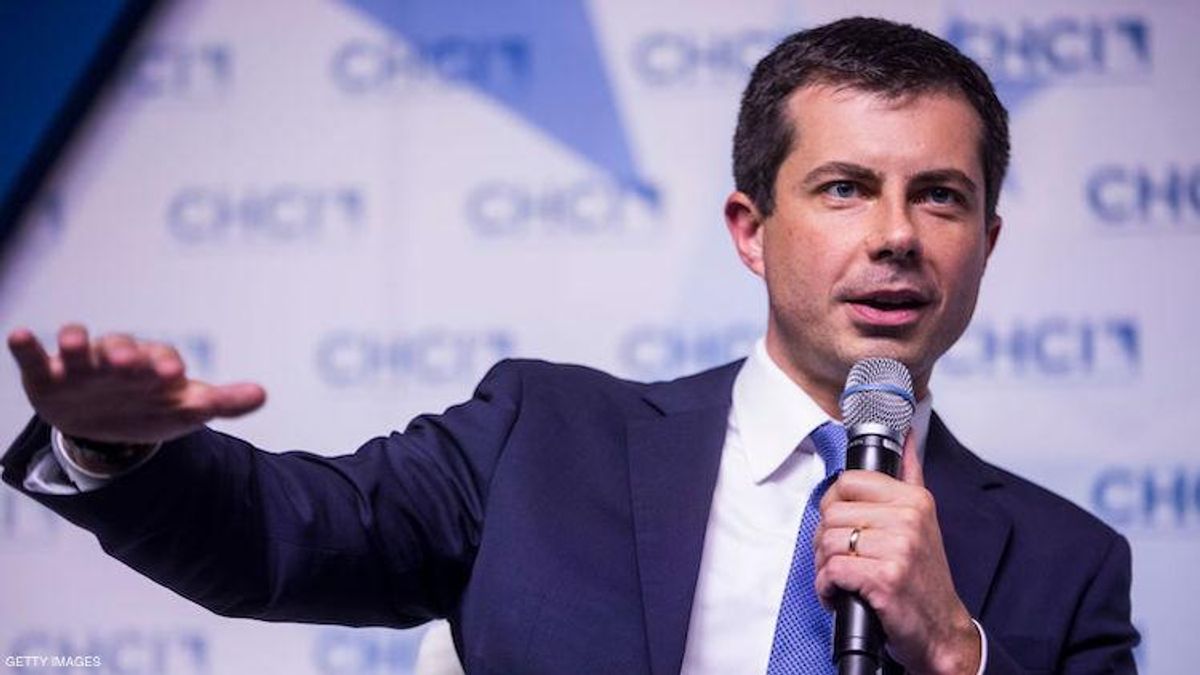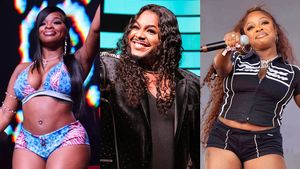All Rights reserved
By continuing to use our site, you agree to our Private Policy and Terms of Use.
Pete Buttigieg made history during the third Democratic primary debates.
On Thursday, Buttigieg became the first candidate to ever talk about being LGBTQ+ during a presidential debate. During his closing remarks, the South Bend, Ind. mayor discussed coming out while running for re-election in June 2015. In an op-ed published in the South Bend Tribune, he wrote that he was "well into adulthood before I was prepared to acknowledge the simple fact that I am gay."
On the debate stage, the 37-year-old -- who served in the military under "Don't Ask, Don't Tell" -- recalled wondering whether publicly acknowledging his identity would be "the ultimate career-ending professional setback."
"I came back from the deployment and realized that you only get to live one life," he said. "And I was not interested in not knowing what it was like to be in love any longer, so I just came out. I had no idea what kind of professional setback it would be, especially because inconveniently it was an election year in my socially conservative community."
However, Buttigieg said his faith in Indiana voters was rewarded when was reelected just months after coming out, defeating Republican Kelly Jones with 80 percent of the overall vote. That victory was actually larger than when he ran in 2011.
Trending stories
"What happened was that, when I trusted voters to judge me based on the job that I did for them, they decided to trust me," he said. "[...] And what I learned was that trust can be reciprocated and that part of how you can win and deserve to win is to know what's worth more to you than winning."
Buttigieg concluded that there's a lesson in his historic win: campaigns and administrations are built on the same trust voters gave him.
"It's about the people who trust us with their lives, a kid wondering if we're actually going to make their schools safe when they've learned active shooter drills before they've learned to read, a generation wondering we will actually get the job done on climate change," he said. "And if we hold to that, then it doesn't matter what happens to each of us professionally. Together, we will win a better era for our country."
Thursday's debate, which saw Buttigieg facing off against candidates like Elizabeth Warren and Joe Biden, was the first in which the candidate spoke at length about his sexual orientation.
Although the candidate is just the first openly gay man to compete in the Democratic primaries, he only made oblique references to the historic nature of his campaign in previous debates -- referring to husband, Chasten Buttigieg, solely by name. During the first round of debates in June, he remarked, "Chasten and I have six-figure student debt," without clarifying for the audience that the person he was referencing was his spouse.
While Buttigieg did not bring up LGBTQ+ rights at any point in the evening, neither did any of the other candidates on stage. The conversation focused on issues like immigration, health care reform, climate change, education, and trade policy -- all of which, it should be noted, are also LGBTQ+ issues because they affect LGBTQ+ people.
Only a handful of candidates have mentioned queer and trans people during the three rounds of debates held thus far: Cory Booker, Julian Castro, and Kirsten Gillibrand, the latter of whom recently dropped out.
The candidates will have the opportunity to directly address the community on Sept. 20 and Oct. 10: when the candidates will gather for two first-of-their-kind events focused on LGBTQ+ issues. The first is a forum organized by GLAAD, The Advocate, and One Iowa, while the second is a town hall that will air on CNN. Buttigieg will be in attendance at both events and will be joined by Biden, Julian Castro, Amy Klobuchar, and Warren.
Beto O'Rourke, Bernie Sanders, and Andrew Yang -- all of whom participated in Thursday's debate -- have yet to confirm attendance at either.
DEBATE | These Presidential Candidates Won't Debate LGBTQ+ Rights
























































































